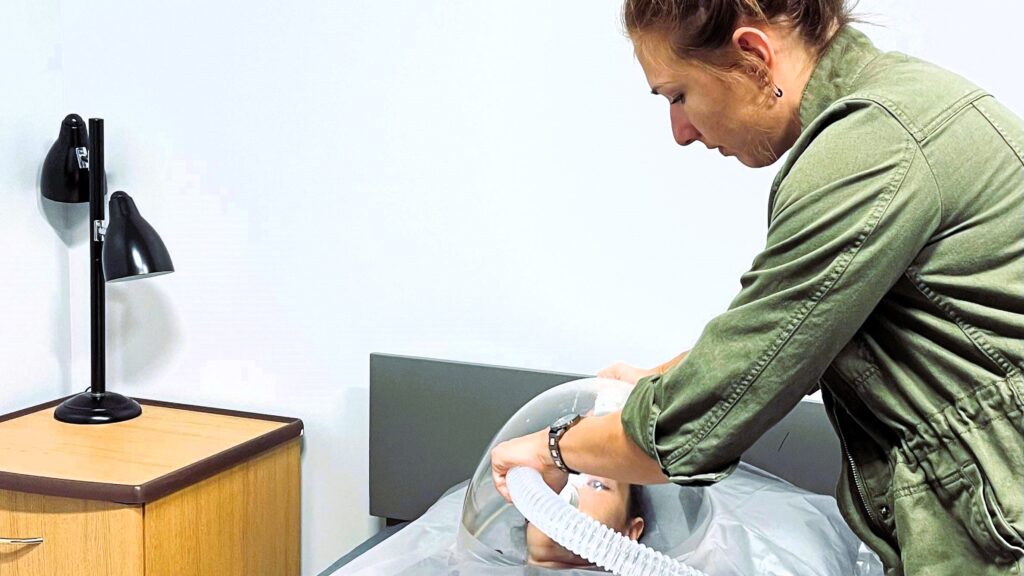Metabolic, Energetics and Sleep Laboratory (METS)
The Metabolic, Energetics and Sleep Laboratory (METS) is the newest laboratory in the Department of Kinesiology. Dr. Jessica McNeil is the director of this laboratory, which allows for the comprehensive measurement of all components of the energy balance (energy intake and energy expenditure) and sleep parameters. Notably, this laboratory is equipped with a metabolic kitchen with a separate eating area/dining table to directly measure energy intake inside the laboratory (during an ad libitum test meal) and under free-living conditions (using portable containers for the participants to bring home with them).
This laboratory also contains a soundproof sleep space which includes a full polysomnogram system to directly measure sleep parameters (including sleep stage duration) and an indirect calorimeter dedicated to resting energy expenditure and thermic effect of food assessments. The polysomnogram system is also portable, allowing for the direct measurement of sleep in the participant’s home.
Lab equipment/measures include accelerometers to monitor physical activity participation under free-living conditions, objective measures of olfactory (smell) and taste sensitivity using Sniffin Sticks® and Taste Strips®, as well as food reward measures with a behavioral choice task that includes visual food cues.
Other equipment/measurements to complement the METS research laboratory are available outside of this lab. Including a Bod Pod and DXA to assess body composition, a stationary and a portable indirect calorimeter to measure exercise energy expenditure and cardiorespiratory fitness (VO2max), ECG monitoring and heart rate variability assessments, an environmental chamber to modify/control temperature and humidity, and access to a full biochemical laboratory to conduct blood analyses for various endocrine, metabolic and stress responses.
Lines of Research
- The effects of exercise, sleep restriction and energy restriction on appetite, food reward and energy balance
- The study of energy compensation following exercise
- The effects of weight loss and weight loss maintenance on appetite, food reward and energy balance
- The role of sleep and exercise in obesity prevention and control
- The role of sleep and exercise in cancer prevention and control


